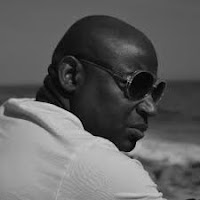When I sat down to begin working on my debut crime novel, Smoke Kings, I did so with great purpose and intention. I knew that if it was ever published that it would establish my brand. A brand of fiction that is "gritty, crime-centric, written with a Black gaze, and peppered with social commentary." I also wanted the language of the book to sing, like some of my favorite crime novelists. James Lee Burke, Dennis Lehane, Don Winslow, and Walter Mosley come to mind. I wanted it to be a propulsive read that compelled readers to flip pages as if they were searching for the winning Powerball numbers hidden in the text. I wanted it to be a novel with something to say. A novel with heart.
Oh, and, uh, my final wish was for it to end up on a banned book list someday.
Wait. What?
By this point, you're wondering if I have a fever. If the accompanying delirium has left me in an altered state of consciousness. Confused and suffering some sort of cognitive impairment. Why would any author write a book they hoped would be banned?
Wouldn't that, like, defeat the purpose?
After all, it's quite challenging to sell books and establish a writing career if readers can't read said book.
You make a good point.
So let me backtrack a moment.
First off, a little bit of context would be helpful. One of my all-time favorite books is To Kill a Mockingbird. As you probably know, it’s a gorgeous melding of a legal drama and a coming-of-age tale with a healthy sprinkling of social commentary.
Right up my alley.
The precocious Scout is one of the most indelible narrators in all literature. It isn't a perfect novel--not that such a beast exists--but it's as readable as any book ever written, in my humble opinion (and I'm not alone).
It's also one of the Top 10 most challenged and/or banned books in the United States.
Book banning is an ugly form of censorship that dates to the 17th Century. According to the website everythinglibrary.org, the first book banned in the US was the three-volume New English Canaan, a work that criticized Puritan customs.
Books are usually challenged or banned outright purportedly to protect readers from difficult ideas and information. Well, as you might imagine, I'm against the practice. But as I started writing the first longhand pages that would become Smoke Kings, I knew that the premise alone would prove unsettling to some readers. Three Black activists and an ally hatch a plan to kidnap the descendants of hate crime perpetrators and force them to pay reparations.
Whew!
Talk about your "difficult ideas and information."
It's a balanced and fair book, though, and I'm proud that in Kirkus' Starred review they note the complex issue of race "has rarely been captured as powerfully or affectingly as it is here."
So, okay, I may not actually want to see the book banned.
***
Jahmal Mayfield writes gritty crime novels that touch on large social issues. He was born in Virginia but currently resides in New Jersey. In addition to writing, Jahmal serves as the director of a nonprofit program that provides employment support to people with disabilities. Mayfield is a husband and father of two young adults who are both embarrassed by his frequent forays down the rabbit holes of YouTube to view old 90s hip hop videos. SMOKE KINGS was inspired by Kimberly Jones’ passionate viral video, “How can we win?”



ReplyDeleteSounds like a very intriguing book, Jahmal--thanks for the introduction. I'm very impressed with the Kirkus quote!